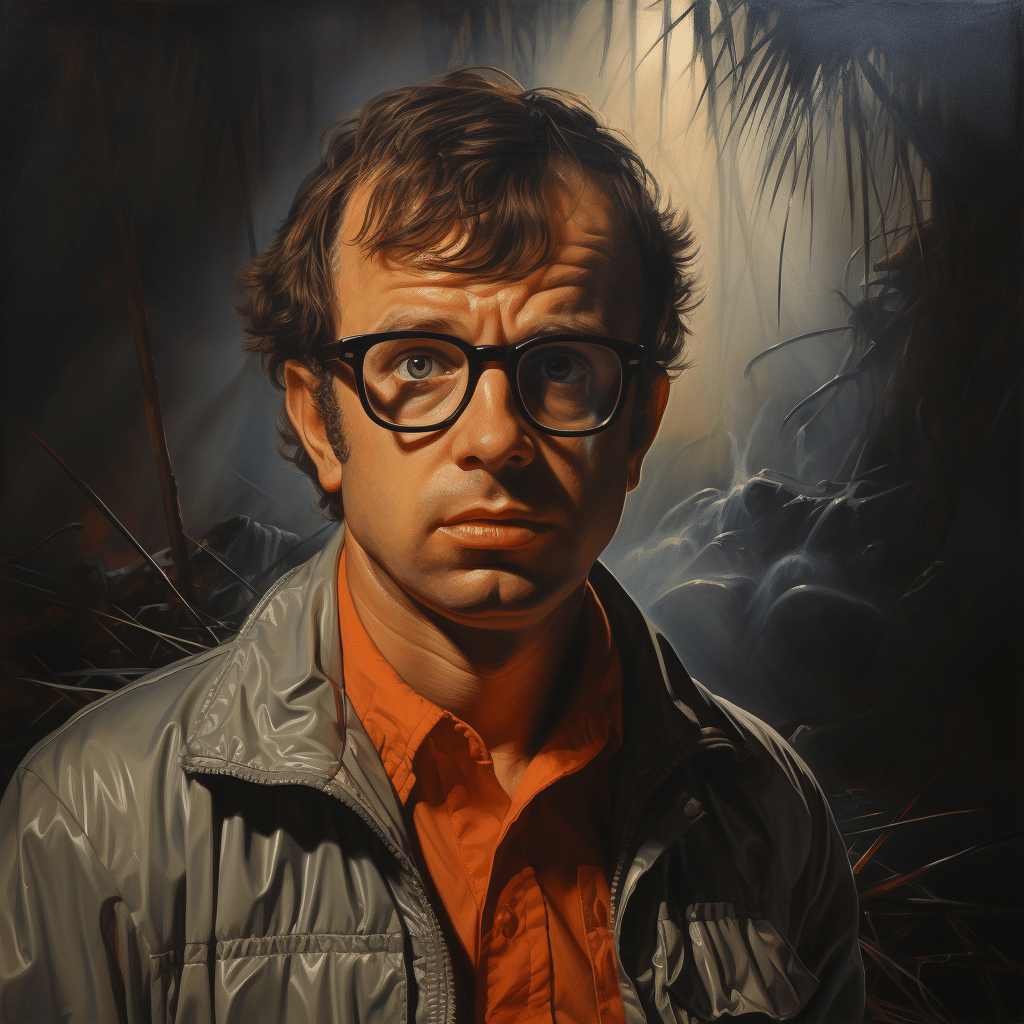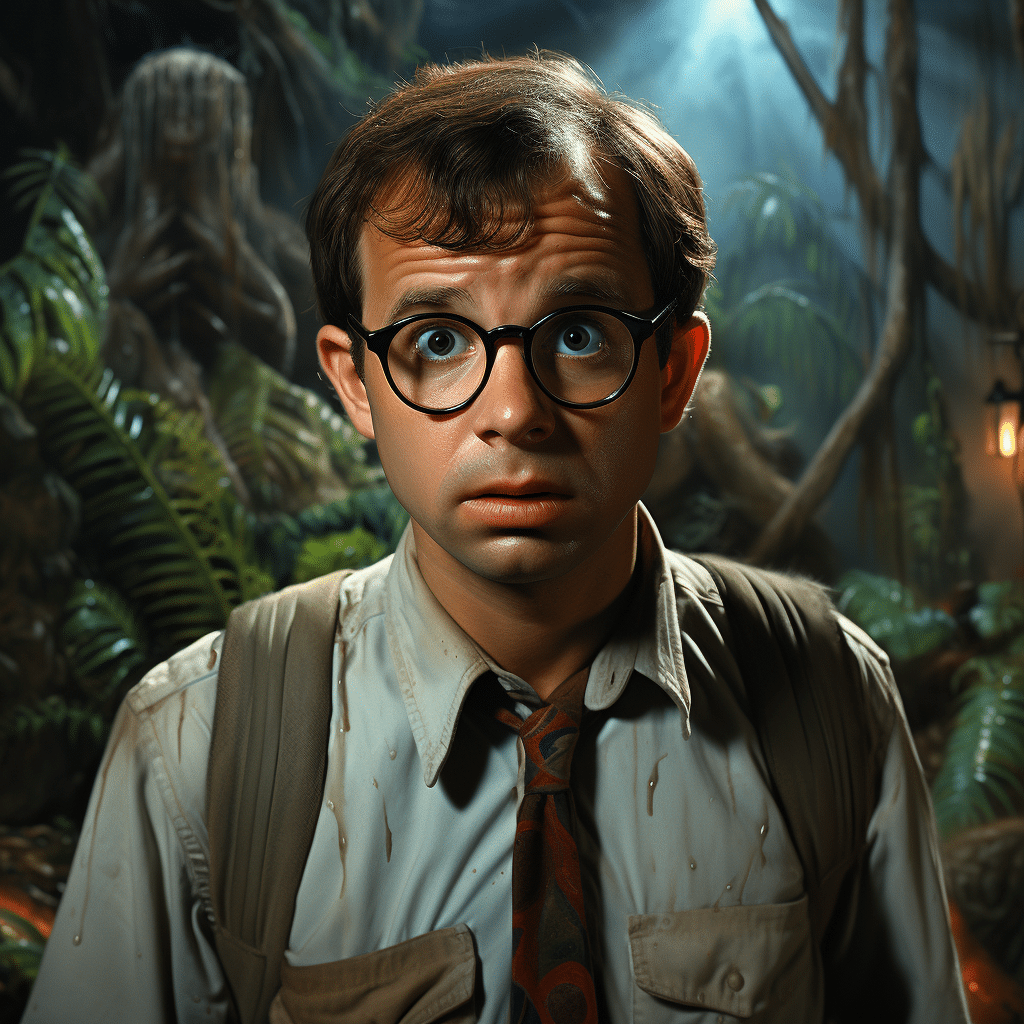Rick Moranis isn’t just your average Joe from the block; he’s a cultural and comedic goldmine whose quirky appeal and genuine charm have left an unshrinkable mark on Hollywood. The man who made us laugh with his nerdy antics in “Ghostbusters” and enchanted us with his paternal adventures in “Honey, I Shrunk the Kids” isn’t just a retro rerun. Oh no, folks, this legend’s tale is as timeless as those tank tops that never go out of style.
The Cinematic Journey of Rick Moranis
In the luminous cosmos of comedy where stars are birthed and supernovas explode, few shine as brightly as Rick Moranis. Our comedic cosmonaut first launched from the sketch comedy stratosphere of SCTV, tickling our funny bones in the living rooms of our zany eighties refuge. Transitioning from small screen to the big, larger-than-life roles awaited.
Moranis blasted off with unforgettable cameos and lead roles, each more stellar than the last. Who could forget the maniacal glee of “Ghostbusters,” where his nerdy accountant turned Terror Dog-possessed “Keymaster” became as iconic as slime itself? Or the carnivorous camp of “Little Shop of Horrors”? I surely can’t! Rick’s compelling comedic style was like a rogue asteroid unpredictable, wildly entertaining, and impactful, leaving craters of laughter in its wake.

The Cultural Impact of “Honey, I Shrunk the Kids”
Now, hold your horses—let’s rewind to 1989, when special effects were as innovative as a Bo Derek hairdo and family movies were serving more cheese than a Chuy’s Tex-Mex platter. This is where “Honey, I Shrunk the Kids,” the magnifying glass that brought Rick Moranis’ talent into macroscopic view, cast its spell upon us.
Wayne Szalinski, Moranis’ brilliant but bumbling inventor, became the dad we all sort of wanted. Overnight, the film seared itself into the collective consciousness of a generation, much like when David Mclaughlin cropped up on the scene with his resonate baritone. It wasn’t just a movie—it was a theme park ride, a running gag in households, and a touchstone for awe-struck kids with magnifying glasses, hoping to emulate Wayne’s miniaturizing mayhem.
| **Category** | **Details** |
|---|---|
| Full Name | Frederick Allan Moranis |
| Birth Date | April 18, 1953 |
| Nationality | Canadian |
| Early Career | Started in the late 1970s with performances in comedy clubs and on radio. |
| Film Breakthrough | Gained prominence with the 1984 film “Ghostbusters,” playing Louis Tully. |
| Famous Roles | |
| Hiatus | Took a hiatus from acting in 1997 to focus on raising his children as a single parent. |
| Personal Life | Became a widower in 1991 and a single parent, which impacted his decision to step back from acting. |
| Career Comeback | Began returning to acting and voice work in the mid-2010s. |
| Notable Works (Post-Hiatus) | |
| Cultural Impact | Rick Moranis is often cited as an example of a celebrity who prioritized family over career. His characters are remembered for their endearing and comedic nature. |
| Awards/Nominations | Has been nominated for several awards, including a Grammy for his comedy album. |
Rick Moranis’ Hiatus from Hollywood
Imagine our surprise, as jarring as finding out your co-worker moonlights as a tubepornstar, when Rick Moranis, at the height of his powers, just…vanished. It turns out, this Hollywood Houdini had a trick up his sleeve more complex than any movie plot—a heart as big as the giant Cheerio in his hit movie. Following his wife’s tragic passing, Rick chose the ultimate act of love: Stepping back to raise his kids. Tinseltown buzzed, fans mourned, but the man behind the glass spectacles showed us what’s truly important.

Moranis’ Influence on Modern Comedy
Fast forward, and like a vintage trend that keeps popping back in your feed, Moranis’ influence refuses to fade. Peek into the toolboxes of today’s comedy craftsmen, and you’ll find them laden with bits and shticks that echo Rick’s style. Current comedic stars may have never donned a shrinking machine or a proton pack, but Moranis’ mold is clearly embedded in the laughter they’re sculpting today. It’s hard to miss the tendrils of his humor winding through the works of directors and actors who grew up marveling at his delightful dorkiness.
The Resurgence of Rick Moranis
Then came the whispers, the rumors, the hope—Rick Moranis was plotting a return! Though we’ve heard him through voice work, the idea of the comedy legend gracing our screens again sparked joy and anticipation like a comeback tour of our favorite band. Fans perked up; the media was abuzz like a beehive after a clumsy bear strike. What does this mean for the industry? For us? It’s like finding that favorite shirt you thought you lost—it still fits, and damn, does it feel good!

Rick Moranis Beyond the Screen
A jack of all trades, Rick didn’t just rest on his laurels during his hiatus; the man picked up a guitar and serenaded us with tunes as catchy as his on-screen antics. His music and philanthropy work are the hidden tracks of his life’s album, each song and act of kindness revealing more about the man behind the comedic mask. Just shows, doesn’t it? There’s no one-note wonder with Moranis—he’s a symphony of talent and heart.
Insights into Rick Moranis’ Legacy
Chat up any colleague of Rick’s, and you’ll gather enough warm and fuzzy anecdotes to stuff a bear. Each story paints a vivid and intimate tableau of a man respected and cherished as much for his off-screen persona as his sterling filmography. Rick Moranis stands tall—a uniquely authentic and unpretentious beacon in Hollywood’s often turbulent waters.
The Enduring Enchantment of a Comedy Giant
As the curtain draws closed on our tribute to the legendary Rick Moranis, let’s remember that this isn’t just a story of a man who made us laugh. It’s an Odyssey of heart, talent, and laughter swirled together in a vortex of awesomeness that has spanned decades. Whatever direction Rick’s journey takes, we follow starstruck, because in the end, he reminds us that the best things in life are often the simplest: family, laughter, and the unwavering courage to be unapologetically yourself. This unshrinking talent has expanded our hearts and reminded us all—big or small—that true stars never really fade away.